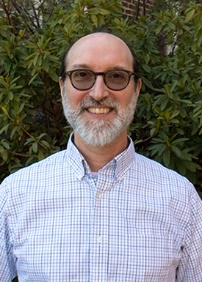The study of religion represents an essential ingredient of a liberal arts education by encouraging sustained reflection on what it is to be human. In doing so, we seek to combine critical analysis with sympathetic imagination, allowing us to understand more fully not only the ‘data’ of vast, diverse and influential religious traditions, but also the human beings who uphold them.
Toward these ends, our field utilizes a tremendous breadth of conceptual tools to foster understanding of religion in all its richness, drawing from anthropology, archeology, history, literature, psychology, philosophy, politics, sociology and theology. Our course offerings reflect an abiding commitment to the study of the traditions that have indelibly shaped our own society, as well as an active engagement with a broad range of the world’s religions that presently constitute our global environment. At Hendrix, students pursue their interests in religion through varied activities including: textual studies, field work, international travel, one-on-one interviews, film studies, artistic projects and service learning.
Students of religion think deeply about matters of the utmost concern, including the purpose of life, the nature of reality, and our relationships with others. They develop skills of careful reading and clear writing as they wrestle with these fundamental questions, as well as a greater appreciation of their own assumptions, a respect for others, and a firm basis for constructively contributing to solutions for the problems of our time.
Link to Facebook Page
NEWS
Hendrix Professor Gorvine Receives Fulbright U.S. Scholar Grant
CONWAY, Ark. (February 17, 2020) — Hendrix College Associate Professor of Religious Studies Dr. William M. Gorvine has been selected as a 2020-21 Fulbright U.S. Scholar. He will use the funding to explore the relationship between traditional Buddhist practices and secular training in mindfulness and compassion.
Gorvine’s project will have him spending several months in India, working with Tibetan monastic scholars at Menri Monastery, where he has maintained connections with the community of monks for the past two decades.
“They were important contributors to the book project, and I’m excited to work with them again,” he said. His 2019 book, Envisioning a Tibetan Luminary: The Life of a Modern Bönpo Saint (Oxford University Press), is based on fieldwork conducted in eastern Tibet and within the Bön exile community in India.
Since his time as a Fulbright Scholar in India while a graduate student at the University of Virginia, when he also took an immersive pre-dissertation trip to Tibet, Gorvine has studied the living Tibetan minority tradition of Bön and its influence on broader contemplative practices. For this project, he will examine key works that provide instruction and advice on contemplative practices that correspond to popular forms of secular mindfulness and compassion training. He will explore how certain traditional Tibetan materials connected with current contemplative approaches have the potential to contribute to and complicate practitioners’ understanding of their everyday endeavors.
Gorvine plans for this project to culminate in a new book that will highlight the ongoing influence of writer and teacher Shardza Tashi Gyaltsen (1859-1934). The project will also involve Tibetan language work and original translation—meaning it will make some works available to an English-speaking audience for the first time. The project will explore how Tibetan texts influence contemporary mindfulness discourse, and how they prove meaningful or effective in Tibetan cultural contexts, while considering how shifting contexts and interpretations have a bearing on their use in other settings, such as the contemporary mindfulness movement.
“I hope this project will provide a course correction of sorts—a reminder that mindfulness practices have origins outside of the social sciences, which is where secular culture often places them,” Gorvine said.
The Fulbright Program is the U.S. government’s flagship international educational exchange program, designed to build lasting connections between the people of the United States and the people of other countries. Recipients of Fulbright awards are selected on the basis of academic and professional achievement, as well as record of service and demonstrated leadership in their respective fields. The Fulbright Program is funded through an annual appropriation made by the U.S. Congress to the U.S. Department of State. Participating governments and host institutions, corporations, and foundations around the world also provide direct and indirect support to the program, which operates in over 160 countries worldwide.
Since its establishment in 1946 under legislation introduced by the late U.S. Senator J. William Fulbright of Arkansas, the Fulbright Program has given more than 390,000 students, scholars, teachers, artists, and professionals of all backgrounds and fields the opportunity to study, teach, and conduct research, exchange ideas, and contribute to finding solutions to shared international concerns. For further information about the Fulbright Program or the U.S. Department of State, visit http://eca.state.gov/fulbright or contact the Bureau of Educational and Cultural Affairs Press Office at 202-632-6452 or ECA-Press@state.gov.

Upcoming Events
Check back soon for upcoming events!
Steel Center: Events
Click the link to the Events page here.
Steel Center: Wednesday Afternoon Discussions
Click the link to the Wednesday Afternoon Discussion page here.